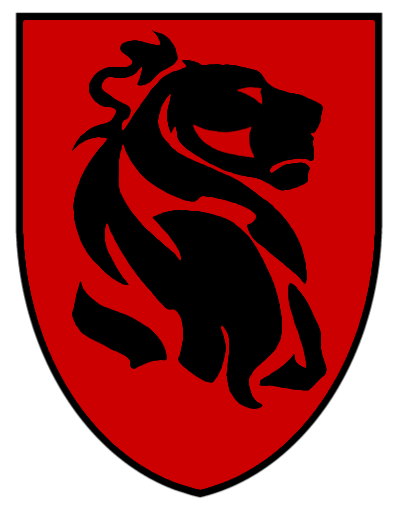A Knightly Code
There are as many knightly codes as there are knights. Every one of them differs. This is because the institution of knighthood is a personal one, every one has their own relationship with the experiences and the journey that got them to that point in their lives. Some codes are regimented and lived with extreme discipline, some are never even written down, more malleable guidelines that the knight lives by as they make their way in the world. Regardless of how a person comes about their code or how they express their way of following it, in my opinion, one’s code is an essential part of their identity as a knight.
Many, many years ago I happened upon a poem by Rudyard Kipling in which he describes the essential qualities of being a man in full. In it as well I feel are the essential qualities of being a knight in this community and have since adopted it as my own knightly code. As I look at the individuals for whom I have the highest respect, I see aspects of each of them in these following lines. As I have taken squires to the Knights of Rhiassa, I have routinely used this code to train them, to ask them to think more deeply about what it means to give service to the community and to conduct themselves in ways that demonstrate their honor and pride. It has taken hold in our knightly order to the degree that virtually all Knights of Rhiassa look to the below text for guidance and we have taken to simply calling it “The Poem” when speaking of it to each other.
The Poem appears below.
If you can keep your head when all about you
Are losing theirs and blaming it on you,
If you can trust yourself when all men doubt you
But make allowance for their doubting too,
If you can wait and not be tired by waiting,
Or being lied about, don't deal in lies,
Or being hated, don't give way to hating,
And yet don't look too good, nor talk too wise:
If you can dream--and not make dreams your master,
If you can think--and not make thoughts your aim;
If you can meet with Triumph and Disaster
And treat those two impostors just the same;
If you can bear to hear the truth you've spoken
Twisted by knaves to make a trap for fools,
Or watch the things you gave your life to, broken,
And stoop and build 'em up with worn-out tools:
If you can make one heap of all your winnings
And risk it all on one turn of pitch-and-toss,
And lose, and start again at your beginnings
And never breath a word about your loss;
If you can force your heart and nerve and sinew
To serve your turn long after they are gone,
And so hold on when there is nothing in you
Except the Will which says to them: "Hold on!"
If you can talk with crowds and keep your virtue,
Or walk with kings--nor lose the common touch,
If neither foes nor loving friends can hurt you;
If all men count with you, but none too much,
If you can fill the unforgiving minute
With sixty seconds' worth of distance run,
Yours is the Earth and everything that's in it,
And --which is more-- you'll be a Man, my son!
Kipling first published this poem over a century ago, in 1910. Certainly those were different times to the ones we live in now and the idea of being “an ideal man” is a dated one. But nonetheless the person that he describes, how he thinks and how he acts, is a compelling individual.
Crucial to Kipling's concept of the ideal man, and likewise my concept of the ideal knight is that they paint a picture of a person who is larger than life, who thinks and acts perfectly in all of the situations described above. No human being, no matter how disciplined, can always exemplify each of these virtues in every word and deed and I am quick to admit that I fail to do so not infrequently. However, it is in holding ourselves up to this example, in following this code even as we fall short of it, that we find personal growth. Though we may never acquire each of them in full, it is in approaching these ideals that we in Rhiassa each walk our own personal paths of knighthood.
I hope that The Poem provides you with that guidance as it has so many of us.
- Jason Rosa, KoR, KoEF
